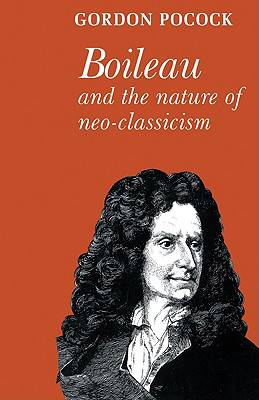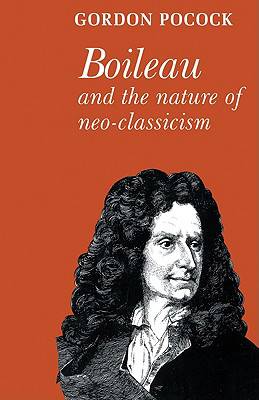
- Afhalen na 1 uur in een winkel met voorraad
- Gratis thuislevering in België vanaf € 30
- Ruim aanbod met 7 miljoen producten
- Afhalen na 1 uur in een winkel met voorraad
- Gratis thuislevering in België vanaf € 30
- Ruim aanbod met 7 miljoen producten
Zoeken
€ 60,95
+ 121 punten
Uitvoering
Omschrijving
Boileau has traditionally been regarded as the spokesman of French neo-classicism, but some elements of scholarship have discounted the importance of neo-classical doctrine in general and of Boileau's particular contribution to it. Many critical approaches have stressed instead the liveliness and wit of Boileau's poems, his love of language and his passionate temperament. Mr Pocock uses these critical approaches to demonstrate in detail how Boileau's verve, love of contrasts, and essentially dramatic imagination animate the major poems. But he also argues that such approaches do not in themselves suffice to explain Boileau's special qualities. Neo-classicism was an important element in the intellectual life of Europe in the most critical period of the decline of Christianity and the rise of rationalism and science. Mr Pocock proposes a reformulation of those views which take account not only of modern criticism but also of Boileau's commitment to neo-classicism and his embodiment of it in his work.
Specificaties
Betrokkenen
- Auteur(s):
- Uitgeverij:
Inhoud
- Aantal bladzijden:
- 224
- Taal:
- Engels
- Reeks:
Eigenschappen
- Productcode (EAN):
- 9780521136754
- Verschijningsdatum:
- 25/02/2010
- Uitvoering:
- Paperback
- Formaat:
- Trade paperback (VS)
- Afmetingen:
- 140 mm x 216 mm
- Gewicht:
- 290 g

Alleen bij Standaard Boekhandel
+ 121 punten op je klantenkaart van Standaard Boekhandel
Beoordelingen
We publiceren alleen reviews die voldoen aan de voorwaarden voor reviews. Bekijk onze voorwaarden voor reviews.











